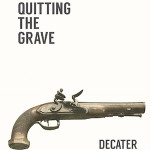Mona Lisa

The murder happened right in front of me, yet not one of the detectives ever bothered to question me about it. They had to know I was a witness. I’ve witnessed so many things during my lifetime that it gets rather tiresome not to be able to share.
I suppose I should give you some background on the whole affair. You’ve probably heard about it by now. A murder in the world’s most famous museum tends to make headlines. Jean was an overnight security guard in the Salle des États who was found dead on the morning of October 22, 2012. He did not die of natural causes.
I was privy to much of the early investigation. The body had no outward sign of physical trauma, but based on the extreme contortion of Jean’s corpse, the Paris police suspected a homicide. More than one of the attending magistrates remarked they had never seen such a horrified expression and everyone agreed that Jean must have died in tremendous pain. I could have confirmed their suspicions, and told them things about Jean that no one else has ever known. I have a gift for drawing secrets out of a person.
After questioning Jean’s wife, they learned about his marital troubles, about his mounting debt, about his failure as a student and lack of career prospects. They probably read a few of his poems and combed through his journals and emails. They would have seen my name written down, but still, no one thought to ask about my involvement. They were focused on the wife, even though she didn’t care enough anymore to commit murder.
Jean’s death, because of the location and the mysterious circumstances, made national news. As the investigation dragged on and no suspects panned out–even the cause of death was still a mystery–the national police fell under heavy criticism. Dismissal wasn’t an option, but several investigators were moved to lesser departments and it would be years before anyone associated with the affair was promoted.
The museum directors at first pushed for a speedy resolution. They wanted the crime scene opened back up to the public immediately and were pushing for suicide or heart failure as the cause of death. But they soon realized that the sensationalism of the press coverage was driving attendance to record levels. I felt trapped inside a Dan Brown novel.
Time passed, as it always does. By this point, most people have forgotten about Jean. His wife has remarried and his mother has entered senility. He never had any children, and, more tragically, his poetry was never published. You never know which creative works will be cherished by future generations.
I still remember. What I recall most fondly about Jean was the way he looked at me. He’d stare for hours all by himself, as if I were the most beautiful woman in the world. He’d ramble and share his ideas and recite drafts he’d written, but mostly he just stared. It was as if he knew that sometimes, even when you’re surrounded by people all day, it’s still very easy to feel alone.
In the end, my desire to have Jean all to myself overcame my modesty. His life may have belonged to others, but his death was all mine. It wasn’t enough to overcome my loneliness, but there are always small comforts to be found in other people’s secrets.
This longer piece was written for the Flash Fiction Challenge at Terrible Minds.
 Please support the site by purchasing one of my books on Amazon. Check out Quitting The Grave, a murder mystery set on the Oregon Trail. Plus, don't forget my other books: They Both Loved Vonnegut, Ahab's Adventures in Wonderland, and Picasso Painted Dinosaurs.
Please support the site by purchasing one of my books on Amazon. Check out Quitting The Grave, a murder mystery set on the Oregon Trail. Plus, don't forget my other books: They Both Loved Vonnegut, Ahab's Adventures in Wonderland, and Picasso Painted Dinosaurs.